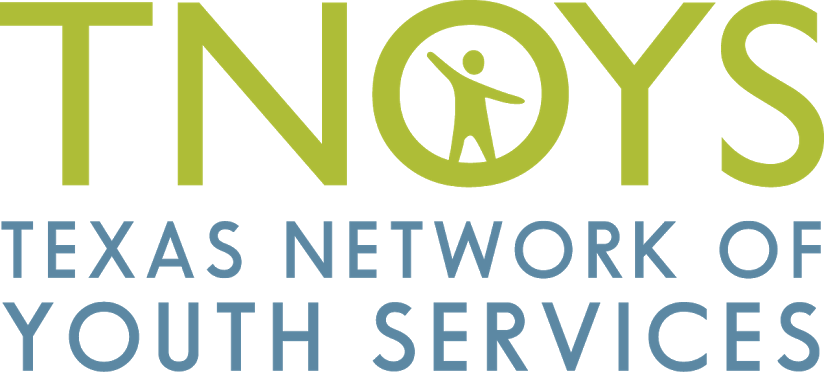This blog post is part of an ongoing series that aim to assist youth service providers in their COVID-19 response efforts. My more information and resources, please visit TNOYS’ blog, or visit the COVID-19 resource page.
As COVID-19 spreads and public health officials recommend everyone practice social distancing and limit their exposure to others, many youth service organizations have closed their offices or asked staff not providing residential care or essential services to work from home. Service providers who conduct in-person case management and therapeutic services are looking for ways to continue these needed services virtually in order to protect the health and safety of the youth and families they serve, ensure the health and safety of their own families, and maintain confidentiality by using virtual services that are secure. Luckily, remote case management and therapeutic services are not new concepts, as they are increasingly being used across the state and the world to serve clients who live in remote or far-flung places.
Research supports the efficacy of remote case management or tele-health services (therapy over the computer), particularly in the wake of disasters. An article in the Journal of Telemedicine and Telecare, Client acceptability and quality of life – telepsychiatry compared to in-person consultation, states: “Telepsychiatry clients felt that they could present the same information as in person (93%), were satisfied with their session (96%), and were comfortable in their ability to talk (85%).” National Children’s Alliance advocates using tele-health services for trauma treatment when clients have barriers to face-to-face therapy, which in the current situation includes social distancing, and potentially shelter in place or “stay at home” mandates.
TNOYS has compiled a document, Recommendations and Planning Considerations for Texas’ Youth Serving Organizations for Preventing and Responding to COVID-19. One section of this document explores how to maintain and modify services in light of risks associated with COVID-19, and poses questions for providers to consider as they make critical decisions about their ongoing operations, including use of virtual tools to conduct therapeutic sessions.
Confidentiality of therapeutic and counseling sessions in a virtual environment requires certain safeguards within the virtual communications system(s) your organization uses. Look for virtual meeting services that are compliant with Health Insurance Portability and Accountability Act (HIPAA) requirements regarding encryption and decryption.
- Encryption/decryption functionality: The service can encrypt messages or sessions “end to end” meaning that the signal is encrypted except for those who have received the invitation code to access the session. Once received by the intended user, the service can decrypt the signal allowing easy access to the client(s) at home.
While TNOYS is not endorsing nor recommending any of the following virtual meeting services, here is a brief list that are HIPAA compliant:
- WebEx
- Zoom
- Doxy
- TheraNest
In Texas, providers such as Jonathan’s Place and BCFS Health and Human Services are equipped and ready to use virtual tools to conduct case management with their clients. These tools allow case managers to visually assess their clients, which would not be possible on the phone or via text. Jonathan’s Place uses Webex to provide online training for its staff, and could easily utilize the video conferencing tool for case managers to connect and check in with clients. Video conferencing enables the client and the case manager to see and engage with each other.
Marissa Cano, Director of Community Based Services at BCFS, has indicated that she and directors of other departments have been having daily conference calls during which they are laying out strategies to continue their services despite direction from authorities to stay home. She says BCFS is exploring having case managers use virtual meeting software like Zoom, Webex, Google Hangouts, or even FaceTime on their phones to keep their connections with clients. Other organizations are allowing case managers who are having face-to-face contact with clients to do so in open spaces outside near where clients live, such as courtyards of apartments, parks, or porches.
It’s important, and concerning, to note that DFPS has not lifted the requirement for residential child care providers to see clients face-to-face as of this writing. This means that although organizations including Jonathan’s Place and BCFS have their case managers working from home, those case managers must continue in-person visits with children and youth who are in foster care.
Prevention and Early Intervention (PEI) contractors who conduct face-to-face services either in-home or in offices, however, have been advised by DFPS to contact the client by phone prior to visiting to inquire about any potential illnesses in the home or office. If the client indicates that there is an illness present, DFPS recommends considering alternate means of client contact such as phone, FaceTime, or other virtual platforms. Providers who are privately funded and/or who are contracted by certain other regulatory agencies or programs, have the option to provide remote case management.
TNOYS is committed to providing up to date guidance and information relevant to Texas youth service providers as we all experience the rapidly changing landscape we are all navigating as a result of COVID-19. This blog post is part of a blog series detailing relevant information to assist youth service providers as they respond to this ongoing crisis. Below, please find TNOYS’ COVID-19 resource page, and other helpful blog posts:
- Resources and Information on COVID-19
- How to Access Hand Sanitizer and Masks for Your Organization
- Accessing Meal Assistance for Families in Need
- Purchasing Bulk Groceries for Your Organization
- Activities and Projects for Youth in Shelters or RTCs during COVID-19
If you have questions or information you would like to share with the TNOYS network, please contact us at aproffitt@tnoys.org.
